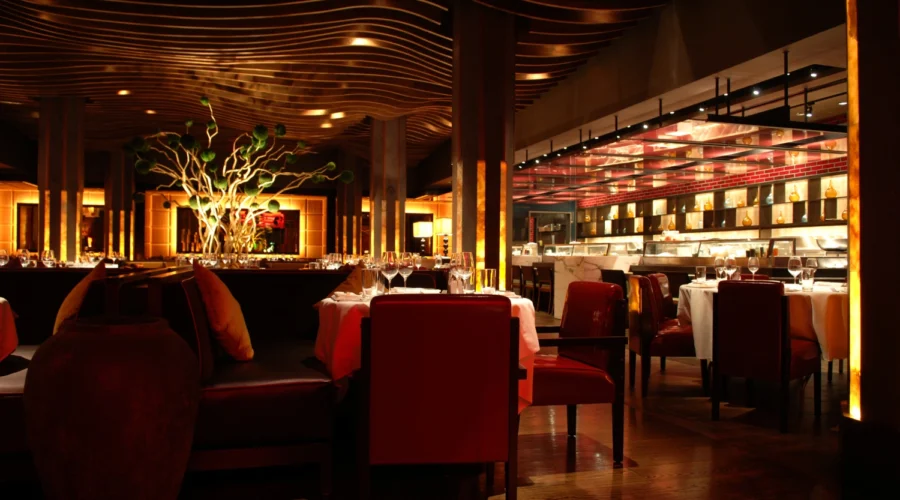Restaurant for Sale: Buying or Selling a Restaurant Business
The restaurant industry continues to thrive, with thousands of establishments changing hands each year. Whether you’re an aspiring restaurateur looking to purchase your first venue or an existing owner ready to sell, understanding the restaurant-for-sale market is crucial for success.
Understanding the Restaurant Sales Market
The restaurant sales market encompasses everything from small cafes and pizza shops to large commercial restaurant buildings and established franchise operations. Location plays a pivotal role, with restaurants for sale in major metropolitan areas like Los Angeles, Houston, Miami, and Las Vegas typically commanding higher prices due to increased foot traffic and market demand.
When searching for “restaurants for sale near me,” buyers often discover a diverse range of opportunities. From turnkey operations with existing customer bases to restaurant spaces requiring complete renovation, the market offers options for various budgets and business goals.
Types of Restaurant Businesses Available
Small Restaurant Operations
Small restaurant for sale opportunities often provide the most accessible entry point for new restaurateurs. These establishments typically require lower initial investments and offer more manageable operations for first-time owners. Pizza restaurants, in particular, remain popular choices due to their proven business models and consistent demand.
Franchise Opportunities
Subway restaurants and other franchise operations represent a significant portion of the restaurant-for-sale market. These businesses come with established brand recognition, operational systems, and ongoing corporate support, making them attractive to buyers seeking proven business models.
Restaurant Real Estate
Restaurant buildings and commercial spaces offer unique investment opportunities. Buyers can purchase the real estate along with the business, providing long-term asset appreciation potential. Restaurant booth configurations and existing kitchen equipment often transfer with these sales, reducing startup costs.
Key Factors When Buying a Restaurant
Location Analysis
Location remains the most critical factor in restaurant success. Areas like Orange County, Sacramento, San Diego, and Michigan markets each offer unique advantages and challenges. Consider foot traffic patterns, parking availability, competitor proximity, and local demographics when evaluating potential purchases.
Financial Due Diligence
Thoroughly examine financial records, including profit and loss statements, tax returns, and cash flow documentation. Understanding the restaurant’s historical performance helps inform purchase decisions and future business planning.
Equipment and Assets
Evaluate existing equipment, including kitchen appliances, restaurant booths, and dining room furniture. Used restaurant equipment can represent significant value, but ensure all items meet current health department standards and operational needs.
Regional Market Insights
East Coast Markets
The Clayton, NC, and Holly Springs, NC markets represent growing suburban restaurant opportunities. These areas often feature lower commercial real estate costs while maintaining steady customer demand.
West Coast Opportunities
California markets, including Los Angeles, San Diego, and Orange County, typically feature higher purchase prices but offer access to diverse customer bases and established food cultures.
Southern Markets
Cities like Houston and Miami provide unique opportunities in rapidly growing metropolitan areas with diverse dining preferences and year-round tourist traffic.
The Selling Process
Restaurant owners considering selling should prepare comprehensive documentation, including financial records, lease agreements, and equipment inventories. Professional business brokers often facilitate these transactions, helping match sellers with qualified buyers while ensuring proper valuations.
Financing Restaurant Purchases
Most restaurant purchases require combination financing, including traditional bank loans, SBA lending, and seller financing arrangements. Buyers should prepare detailed business plans and financial projections to secure favorable financing terms.
Common Challenges and Solutions
Equipment Considerations
When purchasing existing restaurants, carefully assess equipment conditions and replacement timelines. Used restaurant booths and kitchen equipment may require immediate investment, impacting your initial budget calculations.
Lease Negotiations
Restaurant space leases significantly impact long-term profitability.Check that the lease terms are compatible with your business ambitions, and think about opportunities for renewal or expansion.
Frequently Asked Questions
How much does it cost to purchase a restaurant?
Restaurant purchase prices vary dramatically based on location, size, and type. Small establishments might sell for $50,000-$200,000, while larger operations or prime locations can exceed $1 million.
Should I buy an existing restaurant or start from scratch?
Existing restaurants offer established customer bases and operational systems but may require addressing previous owner’s challenges. New restaurants provide complete control but face higher startup costs and market uncertainty.
What’s included in restaurant sales?
Typical sales include equipment, furniture, existing inventory, recipes, and sometimes real estate. Always verify what transfers with the purchase through detailed asset lists.
How long does the restaurant buying process take?
Restaurant purchases typically require 60-120 days, depending on financing complexity, due diligence requirements, and lease transfer processes.
Conclusion
The restaurant-for-sale market offers numerous opportunities for aspiring and experienced operators alike. Success requires thorough research, proper due diligence, and realistic financial planning. Whether you’re searching for restaurants for sale near your location or exploring opportunities in specific markets like Las Vegas or Michigan, understanding local market conditions and industry trends will guide you toward profitable investments.
Remember that purchasing a restaurant represents both a business and lifestyle commitment. Take time to evaluate not just the financial aspects but also your personal readiness for the demanding restaurant industry. With proper preparation and realistic expectations, restaurant ownership can provide rewarding entrepreneurial opportunities and long-term financial success.



